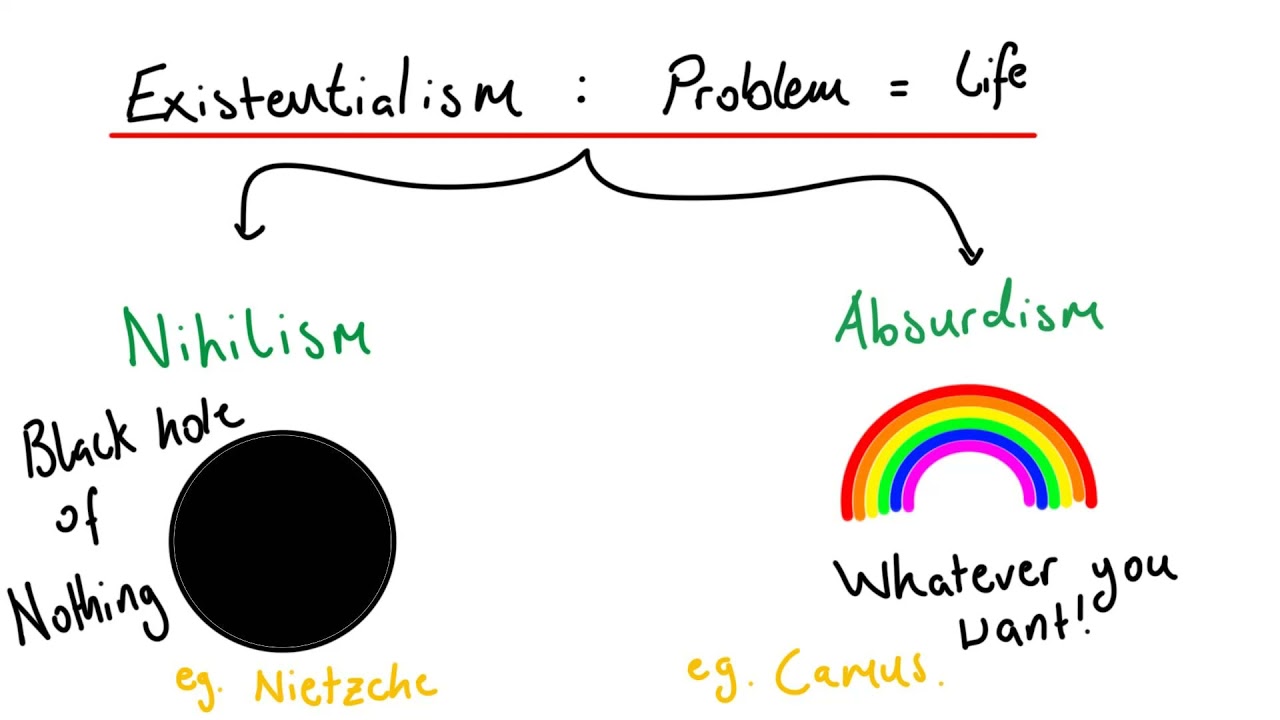In the realm of existential philosophy, two prevailing ideologies stand out prominently: Absurdism and Nihilism. Both concepts delve deep into the human condition, exploring the inherent meaninglessness and absurdity of existence. While they share some similarities, they also diverge significantly in their outlook and implications. In this exploration, we will dissect the core tenets of absurdism and nihilism, their philosophical underpinnings, and how they shape our understanding of existence.
Understanding Nihilism:
Nihilism, derived from the Latin word “nihil” meaning “nothing,” is a philosophical doctrine that asserts the absence of inherent meaning or value in life. It posits that life is devoid of any objective purpose, morality, or significance. Originating from the works of Friedrich Nietzsche, nihilism gained traction as a response to the decline of religious and moral certainties in the modern world.
At its core, nihilism rejects the existence of absolute truths or ultimate meaning, viewing reality as fundamentally chaotic and indifferent. This perspective can lead to feelings of despair, alienation, and existential angst as individuals grapple with the realization of their own insignificance in the vastness of the universe. Nihilism often prompts questions about the futility of human endeavors and the inevitability of death, challenging traditional beliefs and value systems.
Absurdism: Embracing the Absurd:
Absurdism, on the other hand, acknowledges the inherent absurdity of the human condition while advocating for a defiant embrace of life’s absurdities. Developed primarily by the existentialist philosopher Albert Camus, absurdism contends that humans persistently seek meaning and purpose in a universe that offers none. The absurd arises from the inherent contradiction between humanity’s desire for meaning and the universe’s indifference to such desires.
Camus famously illustrated the absurd through his essay “The Myth of Sisyphus,” where he likened the human struggle for meaning to the futile task of Sisyphus, condemned to roll a boulder uphill for eternity. Despite the absurdity of his predicament, Sisyphus finds meaning in the act of defiance itself. Similarly, absurdism encourages individuals to confront the absurdity of existence with courage and passion, embracing life’s challenges and uncertainties.
Distinguishing Between Absurdism and Nihilism:
While both absurdism and nihilism acknowledge the absence of inherent meaning in life, they differ significantly in their responses to this realization. Nihilism tends towards pessimism and nihilistic despair, emphasizing the pointlessness of existence and the impossibility of finding meaning or purpose. In contrast, absurdism advocates for an affirmative attitude towards life despite its inherent absurdity.
Absurdism celebrates human resilience and creativity in the face of existential uncertainty, urging individuals to find meaning through their actions and experiences. Rather than succumbing to nihilistic despair, absurdists recognize the absurdity of existence as an invitation to live authentically and passionately. They embrace the freedom to create their own meaning and values, even in the absence of objective significance.
Existential Implications:
The philosophical distinctions between absurdism and nihilism have profound existential implications for how individuals navigate the complexities of existence. Nihilism, with its emphasis on the ultimate meaninglessness of life, can lead to feelings of nihilistic despair and existential anguish. It challenges individuals to confront the void of existence without the comfort of transcendent truths or moral absolutes.
In contrast, absurdism offers a more optimistic perspective, affirming the inherent value of human experience despite its absurdity. By embracing the absurd, individuals can find meaning and fulfillment in the act of living itself, transcending the existential void through acts of creativity, solidarity, and rebellion. Absurdism encourages individuals to confront the absurdity of existence with courage and authenticity, forging their own path in an indifferent universe.
Conclusion:
In the existential landscape, absurdism and nihilism stand as two contrasting responses to the inherent meaninglessness and absurdity of existence. While nihilism emphasizes the futility of human endeavors and the absence of objective meaning, absurdism celebrates the resilience and creativity of the human spirit in the face of existential uncertainty.
Ultimately, the choice between absurdism and nihilism lies in how individuals choose to confront the absurdity of existence. Whether through nihilistic despair or defiant affirmation, the journey towards meaning and authenticity is a deeply personal one. In navigating the existential void, we are challenged to confront our own mortality, embrace the uncertainty of existence, and find meaning in the midst of absurdity.
